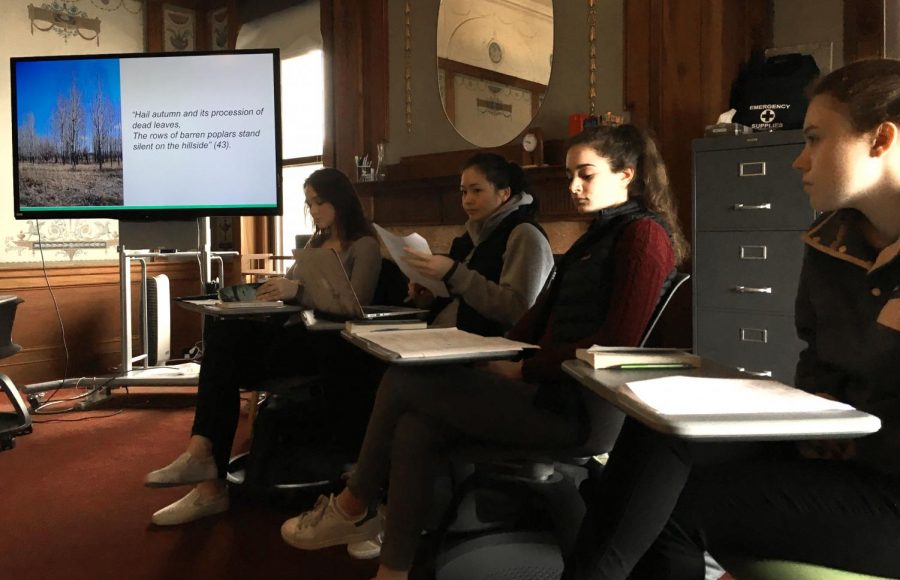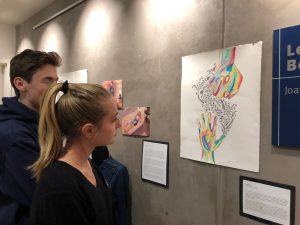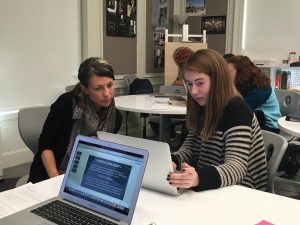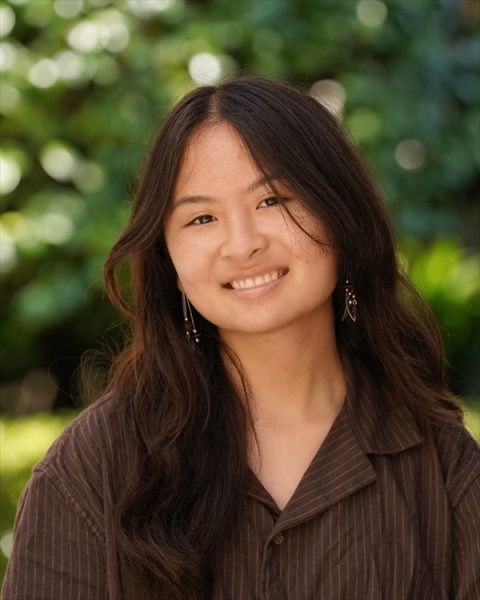Juniors present IB project
The Junior Class provides context and history in their Interactive Oral Presentations.
Juniors Hannah Kelliher, Mason Cooney, Emily Kanellos and Laura Mogannam (left to right) analyze a quote during their Interactive Oral Presentation. Their topic explored the significance of music and food in Vietnam, focusing on the novel “Paradise of the Blind” by Duong Thu Huong.
January 26, 2018
WEB EXCLUSIVE Juniors wrapped up their English Interactive Oral Presentations this week, an assessment part of the International Baccalaureate Programme.
“The Interactive Oral happens in the semester called Works in Translation,” English teacher Julia Arce said, “and the whole point of that is to expose us readers to cultures, context and histories we wouldn’t usually read about because they are all books written in our non-native tongue.”
Juniors presented on subjects connected to the novel “Paradise of the Blind” by Duong Thu Huong, set in Vietnam from the 1960s to 1980s. The book is the first of three translated novels the Juniors Class will read this semester.
“The Interactive Oral creates a nice foundation for an understanding of the book so we can really get to know the characters and why they make their decisions,” junior Abby Anderson said.
Groups begin their Interactive Oral by providing information on their topic, but the focus of the presentation is prompting a whole-class discussion.
“The presentation allows you to think through your thoughts which you may not be able to do if you were to just write it down,” junior Poppy Cohen said. “Also, listening to other people’s ideas can always inspire your own and can help you understand better.”
Although the project has its benefits, it comes with disadvantages as well, according to Arce.
“We sometimes don’t have the luxury of time to go into the more natural discussions and blend in literary analysis,” Arce said. “So yes, it is worthwhile time, but it can sometimes also get in the way of organic conversations and natural literary discussions.”
The presentation is only the first of many stages. Juniors write reflections for each Interactive Oral and will write a formal literary analysis later this semester, all stemming from the presentation conversations.
“The hope is that students get to do a little outside research and then bring it into the class and not just present it, but generate questions and thinking that goes beyond just reading individually in class,” Arce said. “That’s the hope, that we get into interesting discussions that lead us to some place we weren’t necessarily thinking.”













